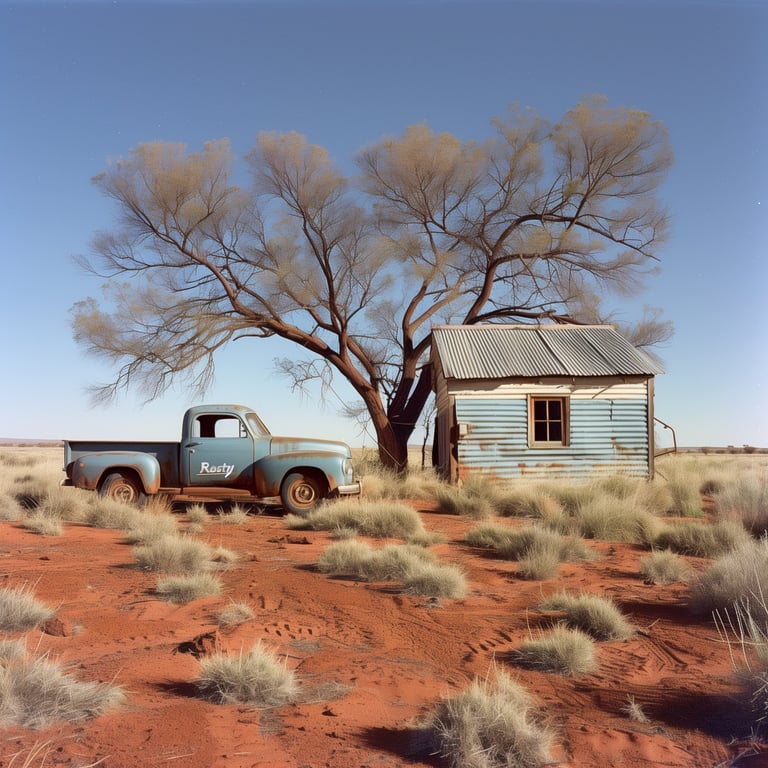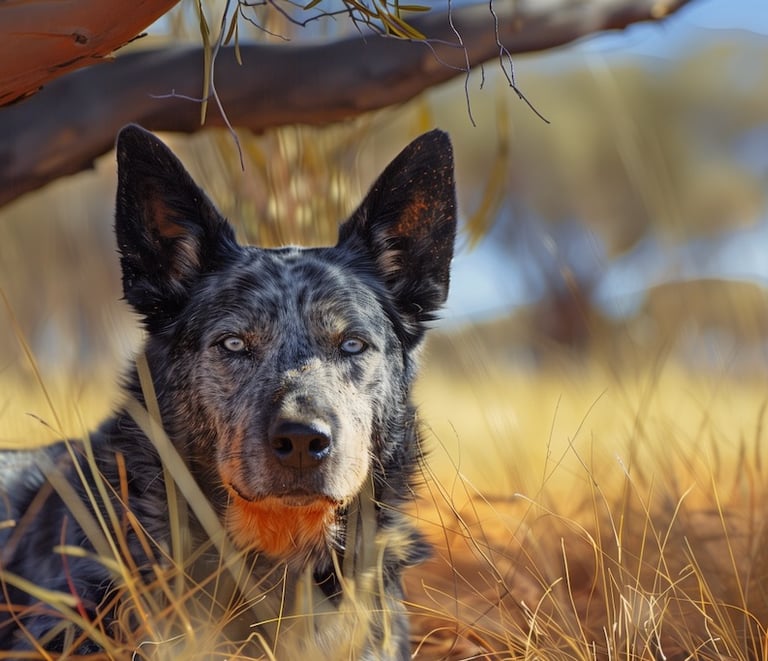Echoes of the Red Dust
A Tale of Family, Resilience, and the Australian Outback
SPIRIT OF AUSTRALIA


In the sprawling expanse of Australia's Red Centre, where the sun scorches the earth and the horizon stretches into infinity, lies the remote town of Marluwirri. Here, the Yirritja family lived, a lineage deeply woven into the fabric of this arid landscape, their roots as ancient as the land itself.
Mick Yirritja, the patriarch, was a man of the earth, his hands calloused from years of tending to the scarce but resilient bush tucker plants. His wife, Lena, was the community's storyteller, her tales as captivating as the starlit outback sky. Their three children, Tarni, Joel, and little Kylie, grew up wild and free among the spinifex grass, their laughter echoing against the red rocks.
The family's home was a modest structure, a testament to outback resilience, with walls weathered by sandstorms and a roof that rattled in the unyielding wind. Their faithful old Holden Ute, affectionately named "Rusty," was as much a part of the family as their mangy blue heeler, Dusty.
Life in Marluwirri was a dance with nature's extremes. Water was more precious than gold, collected with reverence from the rare rains. Their diet was a testament to the land's bounty, a fusion of traditional bush foods like wattleseed damper and kangaroo stew, supplemented by the occasional trip to the distant town store, a journey often fraught with the perils of sudden storms or the capricious whims of Rusty's aging engine.
Despite the hardships, the Yirritjas were a family of dreamers. Tarni, the eldest, had a voice that could tame the wildest of hearts, her songs a blend of ancient language and new rhythms, telling stories of love, loss, and hope. Joel, with his sharp mind and restless spirit, dreamed of leaving Marluwirri to study law, to fight for Indigenous rights, inspired by the tales of his ancestors and the injustices they had faced.


Yet, beneath the surface of their daily lives, the undercurrents of modernity's vices had seeped into the community. Alcoholism cast a long shadow over the town, its grip relentless, turning friends into strangers and nights into battlegrounds of broken dreams. Mick, once a man of strong will, found himself caught in its snare, a battle he fought in the silence of his pride.
The laws of the tribe, the lore of their ancestors, were the threads that held the community together. When a dispute arose, it was the tribal elders who convened under the ancient ghost gum, their decisions rooted in centuries of wisdom. Yet, as the modern world encroached, these sacred traditions faced the threat of erosion, their relevance questioned by the younger generation, hungry for change but adrift between two worlds.
The turning point came one fateful night when Joel, in a desperate attempt to protect his family from a drunken rage unleashed by Mick, found himself on the wrong side of both the law and tribal code. The incident sent ripples through Marluwirri, forcing the family and the community to confront the fractures within.
In the aftermath, the Yirritja family embarked on a journey of reconciliation, not just among themselves but with their ancestors' traditions. Tarni's music became a bridge between the old and the new, her songs echoing the family's resolve to heal. Joel returned, not as a law student, but as a champion for his people, committed to weaving the wisdom of the past with the knowledge of the present.
In the heart of the outback, amid the endless red dust, the Yirritja family found their strength, their story a testament to the enduring spirit of the Aboriginal people. Theirs was a life of contrasts, a tapestry of joy and pain, tradition and change, all under the vast, unyielding sky of the Australian outback. In Marluwirri, life went on, as timeless and enduring as the land itself.
© Peter Pickering 2024




